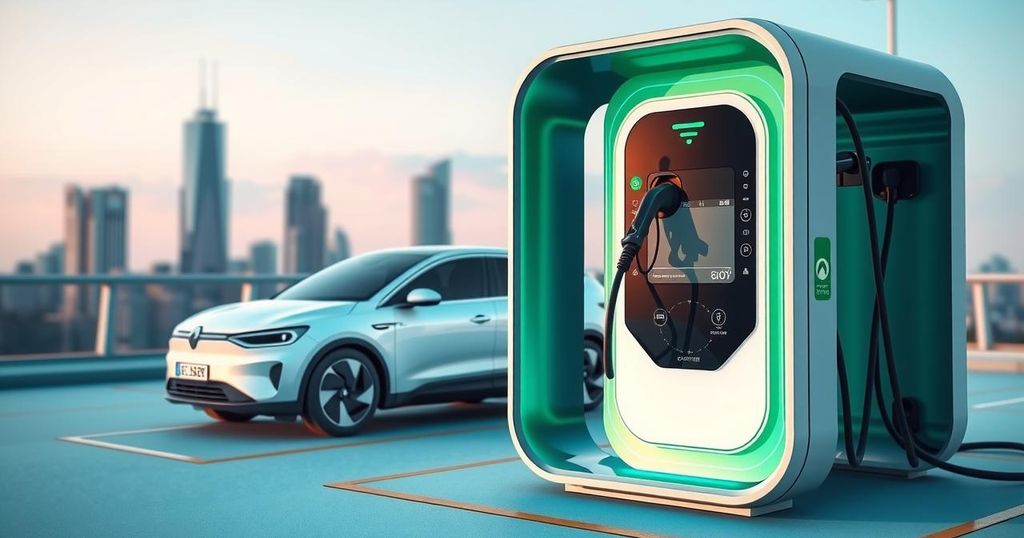BYD’s breakthrough in five-minute EV charging challenges Tesla’s market leadership. While Audi and Alfa Romeo reconsider their all-electric timelines, Nissan forges ahead with a battery partnership. The evolution of consumer perceptions towards EVs hinges on technological advancements and competitive pricing.
Tesla’s market dominance is facing significant challenges as China’s BYD introduces remarkable advancements in electric vehicle (EV) technology, particularly a five-minute fast-charging system. This development raises skepticism among Tesla investors regarding the company’s pace in innovation during an era when public sentiment towards the brand is waning. BYD’s new 1,000 kW DC fast chargers can add approximately 250 miles of range in just five minutes, marking a pivotal advancement in charging technology that could redefine the EV landscape beyond China.
As BYD’s prospects improve, Tesla’s recent stock price decline reflects growing investor concern about its future. Many are calling into question Tesla’s technological leadership as competitors rapidly develop new models, contrasting Tesla’s aging lineup and high prices. Furthermore, Elon Musk’s political engagements have contributed to a decrease in the company’s public image, potentially undermining future growth and innovation in the sector.
Meanwhile, traditional automakers such as Audi and Alfa Romeo appear hesitant about committing to all-electric lineups. Audi recently acknowledged at an investor call that their timeline for transitioning to electric cars may extend beyond their initial projections due to delays in software and production. Similarly, Alfa Romeo has rescinded its plans for an entirely electric future by 2027, indicating a trend among Western manufacturers towards hybrid models as a response to market dynamics.
In contrast, Nissan is proactively securing partnerships to support its electrification ambitions, announcing a collaboration with South Korean battery manufacturer SK On. This agreement aims to provide high-performance batteries for Nissan’s future EVs, underlining the company’s commitment to expanding its U.S.-produced electric vehicle portfolio. With an investment of over $661 million and significant job creation, this partnership marks a pivotal step in enhancing Nissan’s manufacturing capabilities.
The question remains whether ultra-fast charging can truly alter consumer attitudes toward EVs. If affordable, high-performance vehicles capable of five-minute charging enter the U.S. market, consumer acceptance may soar, regardless of their origin. The critical challenge for manufacturers will be to establish trust and showcase the performance advantages that these advancements promise.
In conclusion, the automotive landscape is rapidly evolving, with BYD’s innovations challenging Tesla’s status as a pioneer in the EV sector. As traditional manufacturers hesitate on their electrification timelines, Nissan takes decisive action to bolster its electric vehicle strategy. The success of future EV adoption may hinge on technological progress, consumer perceptions, and pricing competition in a shifting market.
In summary, Tesla faces increasing competition from BYD, whose five-minute EV charging technology could significantly shift market dynamics. Traditional carmakers like Audi and Alfa Romeo are reevaluating their electric plans amid a competitive landscape, while Nissan proactively partners with SK On to enhance its EV production capabilities. The future of EV adoption may depend on how well manufacturers respond to market demands for performance and affordability.
Original Source: insideevs.com




